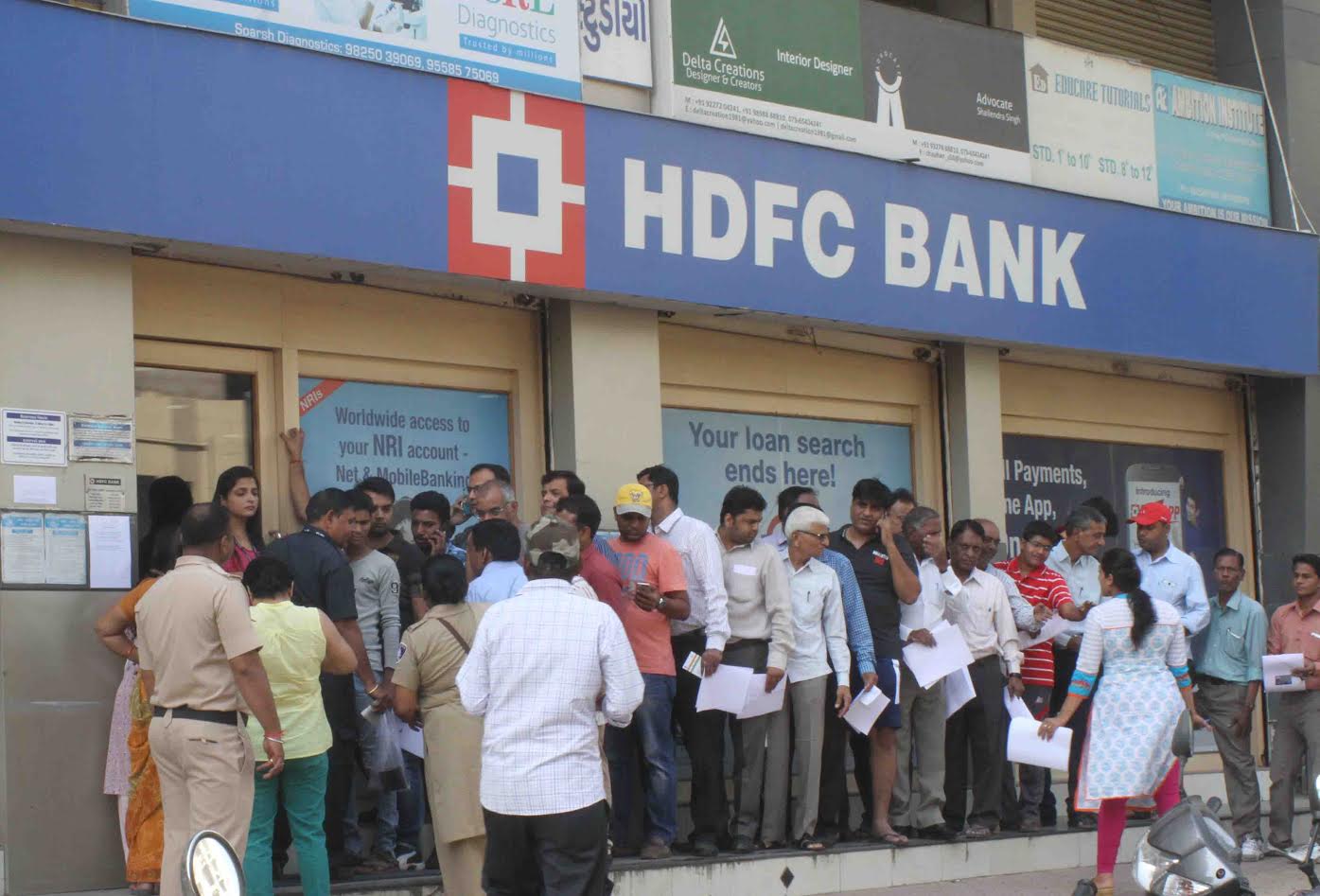Cash crisis: Traders’ body in Gujarat seek PM’s, RBI intervention
November 27, 2016
Vadodara:Ruing that their business has virtually come to a standstill post currency ban, traders in Gujarat have sought intervention of the Centre, the state and RBI to tide over the liquidity shortage.
The Gujarat chapter of the Confederation of All India Traders (CAIT) has said Prime Minister Narendra Modi, Gujarat Chief Minister Vijay Rupani and RBI should intervene more to resolve the issue of cash crunch.
“Traders have been forced to shut down their business following the government’s surprise move to demonetise high-value currency notes, which has resulted in a shortage of valid bank bills,” Pramod Bhagat, President of Gujarat chapter of CAIT, told PTI.
Situation is becoming “grim day by day” as traders are facing liquidity squeeze due to restrictions on withdrawals of cash from their bank accounts.
“Also, traders want limits on withdrawal from the current account to be lifted. The shortage of Rs 50 and Rs 100 notes is also hurting their business,” he said.
“We cannot do much business with a weekly withdrawal limit of Rs 50,000 from current account and monthly limit of Rs 2 lakh. This amount is not enough to meet our basic monthly expenses like rent, wages and daily incidental expenses.”
Nilesh Shukla, President of the Vadodara Chamber of Commerce and Industries (VCCI), claimed that lack of required cash is affecting over 18,000 small-scale industrial units in the city, Gujarat’s commercial hub.
Naranbhai Rathwa, Congress leader and a former Union minister said Agricultural Produce Market Committee-run yards in Chhotaudepur district had to remain mostly closed after the scrapping of Rs 500 and Rs 1,000 notes, which has led to shortage of low-denomination currencies.
Cash deficit hits market hard, but many hope for better days
Mumbai:The Centre’s demonetisation move has hit various businesses, with some seeing a drop of nearly 50 per cent in sales, according to experts.
“Not only the businesses in the financial capital Mumbai and neighbouring Navi Mumbai and Thane, there is steep drop of 50 per cent in all businesses of fruits, vegetable, food grains, dry fruits due the cash flow crisis,” said Sanjay Pansare, a fruit trader and former director of Navi Mumbai APMC, the biggest wholesale market of the state.
“Vegetables are perishing. We are unable to pay cash to truckers who normally charge up to Rs 1 lakh for transporting apples from Kashmir to Mumbai and they are not accepting cheque. Earlier, we would get 325 trucks of fruits everyday which has reduced to 175 trucks per day.”
Not just wholesalers, but retailers and small traders are facing taxing times though they are still supportive of the government’s demonetisation move.
Mohammad Bollar, who runs a small shop of leather products in Fort of South Mumbai, said, “No matter our daily business has shrunk up to 25 per cent, the most important thing is this will subsequently clean the market and in coming days, customers would have market of fair pricing.”
Chamber of Associations of Maharashtra Industry and Trade (CAMIT) Chairman Mohan Gurnani said, “The business and other transaction has been reduced up to 50 per cent. Transactions from food grains to metals are very low… I think it would take another one week to get everything streamlined.”
According to Federation of Associations of Maharashtra (FAM), the Mumbai-based organisation of 750 small-scale and trade and service providers associations, “the panic is going to be there” for one or two months, but it would turn out to be a game-changer in future.
FAM president Vinesh Mehta told PTI, “This pragmatic step is creating a sense of panic among the public, that is why every transaction and business has gone down 20 per cent or more. But it is more important that when this phase gets over, entire country would reap the benefit out of it.”
According to a dealer at Manish market in South Mumbai, people are facing difficulties in getting money for marriages and other occasions, sale of old items at online marketplaces has reduced to 10 per cent of what it was earlier even as the sale of digital instruments, including mobile phones, has also been hit hard since November 9.
PTI
Recent Stories
- FM Sitharaman on Gujarat visit on April 20th
- JNK India Limited’s IPO to open on April 23rd
- CR Patil files nomination papers from Navsari Lok Sabha seat
- Miscreants attempt to vandalize BJP office in Rajkot
- Amit Shah files nomination papers for Gandhinagar Lok Sabha seat
- Expressway Accident: Both drivers including deceased booked for negligence
- Amit Shah addresses public meeting in Vejalpur
